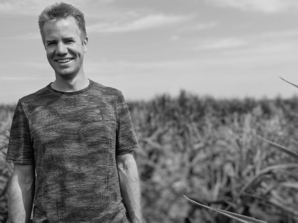Johannes Kromdijk awarded SEB President’s Medal
Editor's Note: Johannes Kromdijk is a member of the RIPE project working on Relaxing Photoprotection.
The SEB President’s Medals are awarded annually to young scientists of outstanding merit. This year’s awards will be presented at the Annual Conference, SEB Prague 2020, which takes place from 7 - 10 July 2020. There is one award per section of the SEB (Animal, Cell, Plant).
Many congratulations to our very worthy winners of the 2020 SEB President’s Medal awards.
- Animal biology section - Florian Muijres
- Plant biology section - Johannes Kromdijk
- Cell biology section - Stefanie Rosa

Growing up in an area of The Netherlands with an abundance of glasshouses, Johannes became interested in plants at an early age. He obtained his BSc and MSc in Plant Sciences at Wageningen University (NL). In 2007 he was awarded the Alexander James Keith PhD studentship to work with Prof. Howard Griffiths at the University of Cambridge (UK), where he studied the effects of light limitation on the efficiency of the carbon concentrating mechanism in C4 photosynthesis. After finishing his PhD, he worked as a research scientist in greenhouse horticulture in Wageningen (NL) for three years, focusing on crop management strategies to optimize photosynthesis and energy use efficiency.
In 2013, he joined the Realizing Increased Photosynthetic Efficiency project team in the lab of Prof. Stephen Long at the Carl R. Woese Institute for Genomic Biology (University of Illinois, USA). Here his work focused on the impact of photoprotection kinetics on the efficiency of photosynthesis during sun-shade transitions. This research led to a major breakthrough when faster recovery of photoprotection in transgenic tobacco was found to increase photosynthetic efficiency and productivity under field conditions.
Since September 2018 Johannes has returned to Cambridge as a fellow at Pembroke College and a University Lecturer in the Department of Plant Sciences, where he employs a range of techniques from ecophysiology, mathematical modelling, biotechnology and genetic engineering to study plant physiology at the nexus of basic understanding of plant function and applications to improve sustainability and food security.
This article originally appeared on the SEB website.
